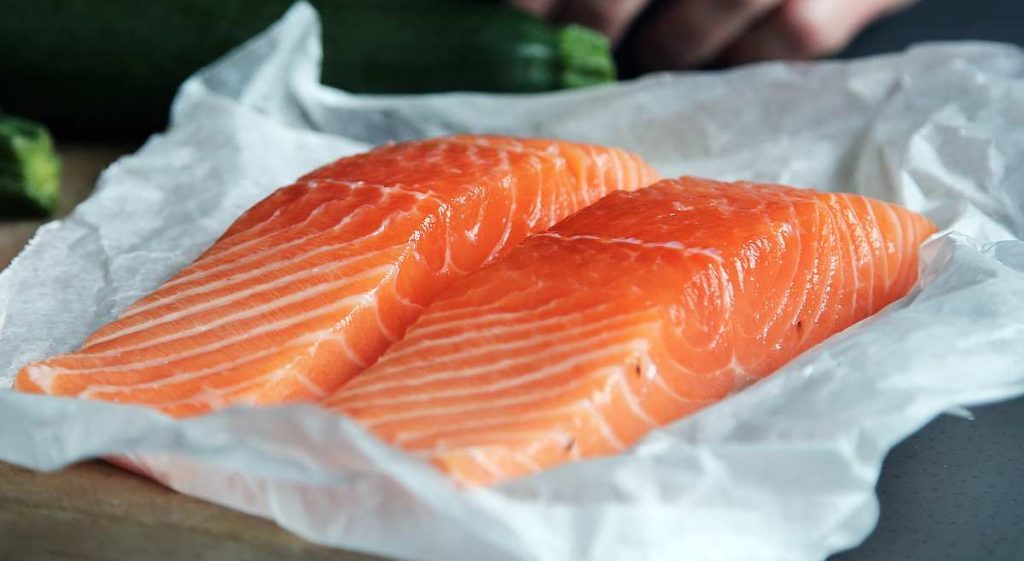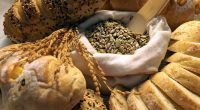Nutrition News & Views
Cheaper alternatives to salmon

We are often told to regularly eat "oily" fish such as salmon.
But salmon can be expensive! So, what are some alternatives?
Salmon is probably the most worthwhile source of good fats. The Omega-3 content of salmon is the richest and most available source of good oils.
Omega-3 has a range of health benefits, including reducing "bad" cholesterol while increasing "good" cholesterol, improving mental health, reducing inflammation and reducing blood clotting inside the body, which helps reduce the chance of heart attack or stroke.
According to the Heart Foundation, the content of Atlantic salmon and the likes of mackerel, silver perch, rainbow trout and bream can be upwards of 500 milligrams (mg) of good fats per 150 gram serve.
So while the value of Atlantic salmon as a source of Omega-3 cannot be understated, other sources that may be gentler on the budget include:
Snapper, Flounder, Mirror Dory, Tuna and Herrings to name a few.
These varieties come in at a close 300 mg - 400 mg of Omega-3 oils per 150 gram serve.
Barramundi, Smoked Cod, Murray cod, Coral Trout and John Dory, as well as Golden Perch and Leatherjacket are slightly lower per 150 gram serve, at 200-300 mg.
What about tinned fish?
Your best sources of Omega-3 in tinned choices, that is, greater than 150 mg/100 grams, include some varieties of tinned salmon and sardines. The lesser content includes some types of tinned tuna, anchovies, mussels, and Atlantic pickled herring.
Probably the lowest is flavoured tinned salmon and tuna at 300-500 mg. This may be due to the heat process and treatment required to ensure food safety with added ingredients.
Seafood that is often thought to contain high sources of Omega-3 are surprising in their content.
Raw Oysters, scallops and prawns, octopus, crab and moreton bay bugs as well as lobster are often less than 300mg per 100g serve.Well at least it is a budget saver!
What if I absolutely loathe and dislike all seafood?
Well omega-3 with a good variety of food can be sourced from a few different food groups.
As far as our food groups go:
Protein foods include legumes, nuts and seeds. Of the nut family, a 30 gram serve of walnuts can provide a massive 1800 mg hit of Omega-3. Chia seeds per 15 gram provide 2600 mg of Omega-3 and the content of flax and linseed is up there at a massive 920 mg per 1 teaspoon or 4 grams.
Pecans at 186 mg per 30 gram serve, hazelnuts and tahini at 36 mg per 30 gram serve show the vast difference in Omega-3 amounts that can exist within the same food group.
Fats and oils are also great sources of Omega-3 fatty acids and of course the amount of these need to be carefully measured.
Flaxseed and linseed oils are currently the best and highest sources of Omega-3 fatty acids. 1 tablespoon (20 grams) of these oils provide 10, 900 mg of Omega-3 fatty acids.
After this, the next best source is Australian grown canola oil. At 1800 mg per 1 tablespoon (20 grams), followed by soybean oil 1434 mg/1 tablespoon (20grams), blended vegetable oil at 1400 mg per 1 tablespoon (20 grams).
Of all oils the most popular is olive oil which is often imported and sold at a premium price for the highly sought-after antioxidant and polyphenol properties.
Olive oil has a great and powerful blend of anti-oxidants, poly-phenols and Omega-3 fatty acids. Of the fatty acid profiles, Omega-3 is low, 92 mg/1 tablespoon (20 grams).compared to the much higher Omega-3 content of flaxseed, linseed and canola oils.
This is the reason why those of Mediterranean origin can be regarded as obese but have less heart disease than other western cultures.
In the Mediterranean diet, olive oil is used liberally, which adds calories and good fats in lower amounts, and when combined with Omega-3 sources of seafood, good antioxidant-rich wine and plenty of green leafy fruits and vegetables explains the conundrum of a healthy fat population, often related to those of Italian and Greek origin.
As a dietary recommendation, I would suggest a snack of walnuts or chia seeds once per day in my yoghurt or cereal in the morning and using a canola, flaxseed or linseed oil in cooking.
Olive oil is lower in omega-3 but has many an antioxidant to prove itself a protective and helpful addition to your diet.
A dietitian and nutritionist in Orange NSW, Natalia Knezivic provides practical and achievable advice for common nutrition problems.



